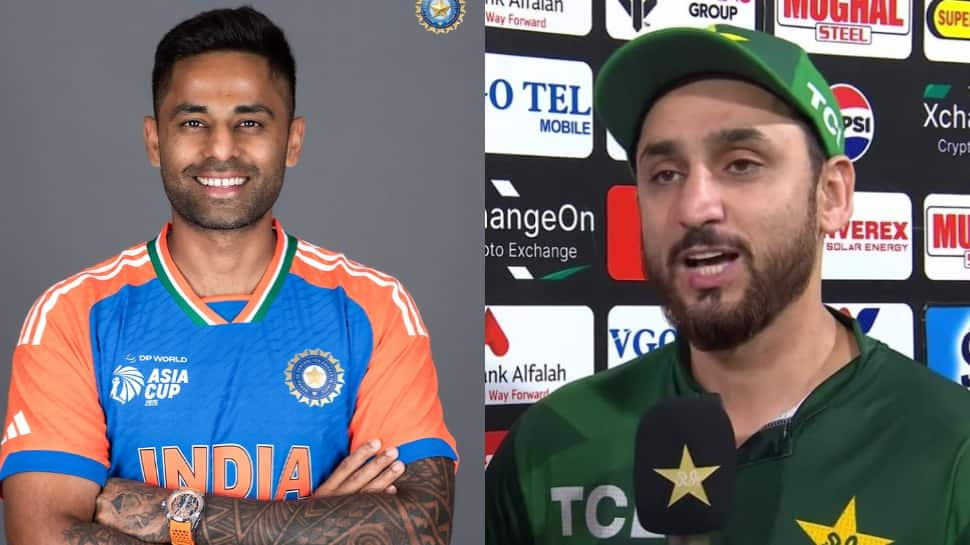The upcoming high-voltage clash between India and Pakistan in the Asia Cup 2025 has sparked intense debate and anger among many Indians, triggered not just by political tensions but by increasingly inflammatory statements from some Pakistan cricket analysts.
One such remark is going round the corners of Internet, it came from Shahnawaz Rana, a Pakistani cricket expert, who dramatically declared, “The Pakistan cricket team can even demolish the Somnath Temple any time. So, let’s not think this team cannot do anything.” Such rhetoric has added fuel to flames, intensifying calls within India for a boycott of the much-anticipated match on September 14 at the Dubai International Cricket Stadium.
“The Pakistan cricket team can even demolish the Somnath Temple any time. So, let’s not think this team cannot do anything”. ~ Shahnawaz Rana, a Pakistani cricket analyst on the 2025 Asia Cup.
For them, sports and games are not about the nation but about waging a religious war. pic.twitter.com/8dgKrTR70M
— Anshul Saxena (@AskAnshul) September 13, 2025
Why Indians Demand a Boycott: The Rise of Extreme Narratives
For many Indians, sports have always been a platform for friendly rivalry, unity, and national pride. However, comments like those from Rana suggest an alarming shift where the contest is not merely about cricket but is twisted into a symbol of religious conflict. This narrative has struck a nerve across India, fueling fears that some see the rivalry as a “religious war” rather than a sporting competition. The extreme hyperbole and the implied threats have led to widespread demands for a boycott, urging the Board of Control for Cricket in India (BCCI) and the government to reconsider sending the Indian team to face Pakistan amid such hostile sentiments.
The India vs Pakistan Asia Cup 2025 Clash: A Political and Emotional Minefield
The clash arrives in a charged atmosphere following the tragic Pahalgam terror attack earlier this year that claimed 26 innocent lives, which India has retaliated against with security operations. The intersection of sport and ongoing geopolitical tensions has made the fixture more than just a game it’s become an emotional flashpoint. Former India captain Sunil Gavaskar stressed that all decisions about the match fall under the jurisdiction of the government and the BCCI, reminding fans that the players are professionals following orders amid these circumstances.
Despite boycott calls, Indian players, led by captain Suryakumar Yadav and vice-captain Shubman Gill (recovering from a recent hand injury scare), have maintained their focus ahead of the match. Assistant coach Ryan ten Doeschate echoed this professionalism, confirming that players respect public sentiment but are committed to giving their best performance. India’s squad includes a blend of youth and experience, featuring strong batters like Abhishek Sharma and hard-hitting all-rounders such as Hardik Pandya, alongside bowlers Jasprit Bumrah and Kuldeep Yadav.
Sport or Symbol? The Ongoing Debate Before the Clash
This India-Pakistan fixture, a marquee match in cricket’s global calendar, now carries a weight far beyond runs and wickets. While many view the game as a showcase of talent and intense sporting rivalry, others see it as a deeply controversial event entangled with national pride and religious undertones. The incendiary rhetoric from certain Pakistan quarters, combined with recent tragic events, has escalated calls for boycott among Indians who feel that the match has drifted too far from the spirit of sport. As fans await this epic showdown, the question remains whether cricket can transcend the heated political climate to unify or if it will further harden divisions between two rival nations.
Squads for Asia Cup 2025
India: Suryakumar Yadav (captain), Shubman Gill, Hardik Pandya, Arshdeep Singh, Abhishek Sharma, Tilak Varma, Shivam Dube, Axar Patel, Jitesh Sharma (wk), Jasprit Bumrah, Varun Chakaravarthy, Kuldeep Yadav, Harshit Rana, Rinku Singh, Sanju Samson (wk)
Pakistan: Salman Agha (captain), Abrar Ahmed, Faheem Ashraf, Fakhar Zaman, Haris Rauf, Hasan Ali, Hasan Nawaz, Hussain Talat, Khushdil Shah, Mohammad Haris (wk), Mohammad Nawaz, Mohammad Wasim, Sahibzada Farhan, Saim Ayub, Salman Mirza, Shaheen Shah Afridi, Sufiyan Muqeem

